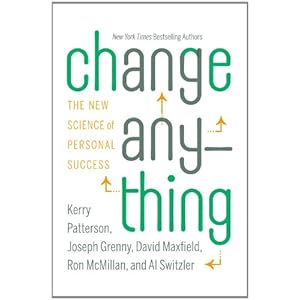 |
| from Clergy Shirt USA |
I think every clergyperson who owns a collar should give 'collared evangelism' a shot. Here's my story.
The church I work at is small. We average about 50 people on a Sunday. We also have no parking. We could probably squeeze twelve cars into our lot if we tried really hard, and there's no room for expansion in our historic neighborhood.
That means we're stuck. If the church is going to thrive, then we have to become a parish church again; that is, we need to have the majority of our congregants walking to church. The problem? We live in a largely dechurched and unchurched neighborhood. Very few people will come on their own.
The solution? Some good old-fashioned evangelism. We have to be in our neighborhood inviting people into relationship with us, with our church, and with God.
But, another problem emerges. When was the last time you introduced yourself to a stranger in a local restaurant? I mean not just saying hello but starting a conversation and exchanging names and business cards? It's been a while, hasn't it? Generally, this is hard because people don't trust strangers. Specifically, this is had because I'm more introverted than extroverted. Because of generalized distrust and my own uneasiness, it's just hard to talk to strangers.
Over the last several months, "collared evangelism" has developed in my imagination. The church where I work rents space to a daycare. There are children and parents about, and I need some way to be marked out as 'belonging' in the church, so I always wear my collar. I noticed that as I wore my collar on public transit to and from the church that strange things started to happen. People approached me. Lots of people started stopping me to get directions. One woman told me about the break-up of her first marriage. The collar did make some people uncomfortable, but it attracted others, not all of whom had church backgrounds.
For some reason or another, in 21st century Toronto, the collar makes me a safe person to talk to. The collar is a uniform. It marks me off as a 'public' person.
So, I'm scared of strangers and those strangers are scared of being talked to by strangers. But, I have to overcome those fears for the sake of the Gospel in our parish's neighborhood. A simple solution presented itself to me: Be a public person. Wear a uniform. In my case, wear a collar.
A plan for collared evangelism developed. I already have a business card with the church's information and service times on it. I decided I would go into neighborhood businesses like coffee houses and restaurants and take advantage of three moments: when I walked in, when someone joined me in line, and when someone sat next to me.
When I walk in, I smile and greet the people behind the counter (if they aren't swamped). Several of the staff at the local coffeehouse already know me by name.
When someone joins me in line or sits down next to me, I say something introductory about the weather or their laptop or whatever. Then I say, "Hi, I'm Jason. I'm a priest at St. Matthew's on First Avenue just up the way." They usually introduce themselves, and we enjoy a few minutes of small talk. When the conversation starts to die (sometimes it takes 30 minutes!), I say, "I'm in the habit of giving out my card. Would you like one?" Everyone has said yes.
I made it into a game and started keeping track of the number of cards I give out. I'm up to 14, and I've invited 2 of those people to church. That's 14 cards in only 5 visits to local establishments.
Now, most priests I know who are older than me hate wearing their collars in public. They either think it's a holdover from established-church days or that it's just plain pretentious. They assume that the culture around them is holding a list of grievances that they are waiting to take out on clergy. Or, they think that they have to hide the church for a while until they can get people into a relationship with Jesus. Then, and only then, will the church make sense.
But, there's another priest in the Diocese of Toronto who through a mutual friend heard about my experiment. He is new to his cure and has been trying to get to know people around his neighborhood. But, as he would start conversations with people in restaurants or other local places, he would run into the strangers-are-scared-of-strangers phenomena. People wouldn't engage him.
Then, he started wearing his collar . . . and everything changed. In a matter of weeks, he had two complete strangers start attending his mid-week Bible study.
Crazy and kinda counter-intuitive, eh?
So, those of you clergy who have collars and feel the call to do some evangelism in your neighborhood, I invite you to join me in this 'collared evangelism' experiment. I'll be collecting stories and anecdotes in the new Collared Evangelism Facebook group. Please come join us and share your stories, both good and bad!


